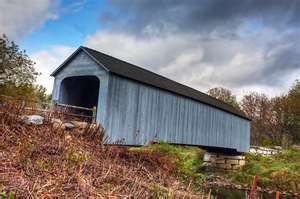Heartflow: Honoring the Housatonic River celebrates the history and rich biodiversity that is at the heart of Berkshire life, past, present and future. This event offers an opportunity for people to connect with the Housatonic river as a community and individually.
We meet at the Sheffield Covered Bridget at 9am, every 3rd Sunday of the month. Contact Sarah Natan for more details, at illuminahealingarts@gmail.com
Additional background on the Housatonic River and the Heartflow event:
The Housatonic River headwaters begin in Pontoosuc Lake in Lanesborough and Pittsfield, Richmond Pond in Richmond, and Muddy Pond in Hinsdale, Washington. It then flows 149 miles south through Massachusetts and Connecticut, finally emptying into Long Island Sound. This river has shaped the natural ecology and industrial, agricultural and social history of the Berkshires, connecting its towns and communities. Yet its use as a sewer pipe for excessive industrial wastes has rendered it unswimmable, unfishable, and now, largely neglected. The release of massive amounts of toxic PCBs (a class of persistent, man-made chemicals, known to be carcinogenic to animals and probably humans), used by General Electric in the manufacture of transformers for decades, has been particularly devastating to all those living within the river’s 1,950 square mile watershed.
Heartflow was conceived by local citizens and the Berkshire Rights of Nature group, which is engaged in a larger effort to establish legal standing for the Housatonic River. The concept of granting rights to nature is gaining momentum in the US and worldwide as a way to shift beyond the human-centered limitations of current legal systems and honor and protect the natural world. In 2006, Tamaqua, PA was the first township to successfully pass a "community bill of rights" giving nature civil rights, and making it unlawful for corporations to "interfere with sthe existence and flourishing of natural communities or ecosystems, or to cause damage" to them within the township.
Pittsburgh followed suit in 2010, preventing fracking by declaring a right to clean air, water, and soil for all the citizens of Pennsylvania. In March of this year, citizens of Toledo, Ohio enacted the Lake Erie Bill of Rights with a 61% majority. Bolivia and Ecuador have both enshrined the rights of nature in their constitutions and legal battles have been won in New Zealand and India protecting rivers. As well, the Green Party of England and Wales adopted rights of nature as an official party policy in 2016.
How this principle will work in practice has yet to be resolved, but it serves as a new paradigm to re-envision the relationship between humanity and the environment that supports us.
“The fact is… until the rightless thing receives its rights, we cannot see it as anything but a thing for the use of 'us' – those who are holding rights at the time,” said law professor Christopher Stone in a 1972 article entitled, "Should Trees Have Standing?”

